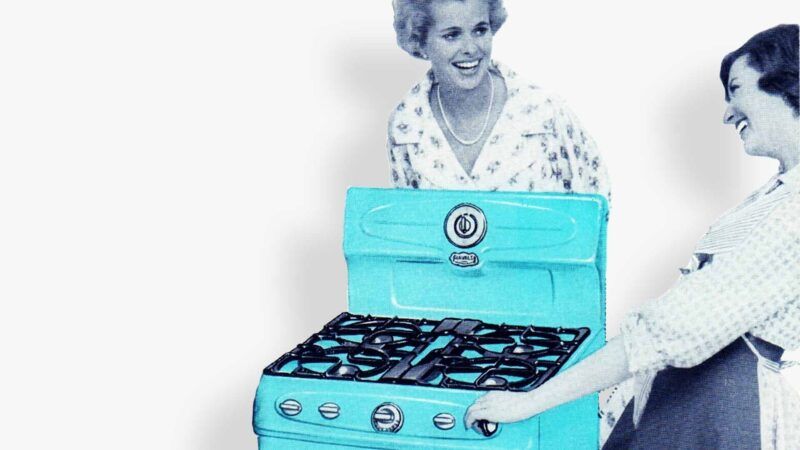Gas Stoves May Soon Be Banned To Protect the Children
Federal regulators and lawmakers are pushing bans after a new study came out linking indoor gas stove usage to childhood asthma.

In New York City, newly constructed buildings under seven stories are not allowed to have gas hookups for heating or stoves. In California, new gas hookups are banned or discouraged in more than four dozen cities. But the war on gas may be coming for all Americans' cooking appliances, as a federal agency considers a ban on gas stoves, which have been linked to childhood asthma and other respiratory problems.
The Consumer Product Safety Commission said this week that gas stoves, found in 35 percent to 40 percent of American homes and 76 percent of restaurants, release nitrogen dioxide and carbon monoxide at levels deemed unsafe by the Environmental Protection Agency and the World Health Organization. This comes on the heels of a new study, published just last month in The International Journal of Environmental Research and Public Health, linking indoor gas stove usage and increased risk of childhood asthma, attributing some 12.7 percent of childhood asthma cases to the appliances. (Some doubt has been cast on that specific study, though there is solid evidence that elevated nitrogen dioxide levels are linked to respiratory issues.) "Are gas stoves the new cigarettes?" asks a sensationalist Curbed headline.
"This is a hidden hazard," Richard Trumka Jr., an agency commissioner, told Bloomberg. "Any option is on the table. Products that can't be made safe can be banned." The agency indicated that public comment on new regulations may open in the coming months.
Over 40 million American households use gas stoves. This type of power should never have been given to unelected bureaucrats and it is time for it to end. https://t.co/ey1sYrDvX9
— Gary Palmer (@USRepGaryPalmer) January 9, 2023
Some lawmakers, like Sen. Cory Booker (D–N.J.) and Rep. Don Beyer (D–Va.), have pressured regulators to act, couching their concerns in the claim that gas stoves create a "cumulative burden" on black and Latino households already disproportionately harmed by air pollution. Other Democratic lawmakers, like New York Gov. Kathy Hochul, have proposed statewide bans on putting gas hookups in new buildings out of environmental concern.
All this ignores that gas stoves are popular precisely because they're superior to electric and induction. Most home chefs—and pretty much all professional chefs—will tell you that electric stoves take a long time to heat up and are far less responsive when changing heat levels. Induction stoves, which are actually quite fast to heat up, require different types of cookware and kitchen thermometers, in addition to being a lot more expensive than electric stoves. (Oddly, the Inflation Reduction Act, passed in 2022, included incentives for people to transition from gas to induction and electric—something that has literally nothing to do with inflation.)
There are a lot of other options that could work in lieu of a top-down ban. Lots of homes don't have any children in them and, thus, will not be implicated in the development of childhood asthma. Adults in those homes should decide what level of respiratory harm they're OK with (just as they do when they choose to smoke or to live in cities with a lot of air pollution like Los Angeles or New York). People could also use air filters or range hoods to improve indoor air quality and mitigate possible toxin exposure. Regulators could wait to see what positive changes market forces create all on their own, as induction technology improves and cheapens, given how popular it already is with cooks abroad.
Or, you know, people could always just assess the tradeoffs for themselves and decide what type of appliances they want based on their own personal risk tolerance, without a bureaucrat intervening.
UPDATE:
BREAKING: The chair of the Consumer Product Safety Commission says the agency has no plans to ban gas stoves after commissioner Richard Trumka's remarks ignited a political firestorm. pic.twitter.com/t18eRDlSdg
— Ari Natter (@AriNatter) January 11, 2023

Show Comments (141)